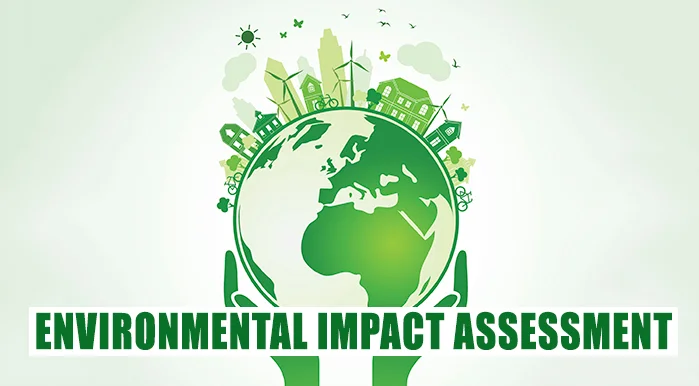Making a decision to purchase a new home is a big one. Even considering the possibility opens up a whole new realm of research, questions, concerns, legal issues, and a continuous slew of decisions. For the uninitiated, this is a gargantuan task in your home country let alone if considering taking this on in a foreign country like Thailand. Of course, the majority of people undertaking this process rely on industry and legal professionals who help navigate the murky waters and tangled web of legal issues involved in purchasing a home or apartment.
Who Is Required to Conduct an EIA?

EIA Cr: bizglob
One such procedure that is sometimes required in Thailand is what is called an Environmental Impact Assessment (EIA). An EIA, which is implemented by the Office of Natural Resources and Environmental Policy and Planning, is only required for larger-scale projects such as a hotel with at least 80 rooms, a condominium project with 80 units or more, or a project encompassing more than 4,000sqm.
The reasoning being that construction projects exceeding this size are more likely to cause significant impacts to the surrounding environment, therefore should be subject to closer preliminary scrutiny in an effort to avoid future issues. As such, if you are in the market for a standalone family-sized house, you don’t have to worry about an EIA having been completed and approved for that property.
However, if you are seeking to buy a condo in a project with more than 80 units, the developer should have an approved EIA for that project. There are cases where smaller construction projects are required to conduct an EIA and this might be influenced by the project’s proximity to coastlines, waterways, or other geographical features which may affect the project, or the project may affect.
It is very important to note that there is no law stating that a developer must complete an EIA before selling units off-plan. This adds another (significant) level of risk, but this is of course why it is possible to purchase off-plan at a much better price compared to the price of a completed unit.
What happens if you buy off-plan and the developer submits an EIA which fails approval? This is where having an experienced agent or property lawyer is critical so they can carefully review your contract and ensure that the potential risks are clear to you and whether you are willing to accept them.
The inability for a developer to obtain EIA approval can result in delays, changes to the project’s design, or even the cancellation of the project entirely.
What Is the Purpose of An EIA?

Generally speaking, the scope of an EIA is to take into account how a potential construction project might affect the immediate surroundings. This can include geological composition and soil stability (risk of landslides), proper wastewater treatment, drainage and runoff management, impacts on regional flora fauna, visual impacts, noise pollution, zoning considerations, impacts on traffic and roadways, energy efficiency, and more.
These considerations not only apply to the actual construction process, but can be monitored and amended during the life of the project which means alterations to the project may be necessary at any time.
While these requirements may seem strict at first glance, it is incredibly important that EIAs exist to prevent severe impacts to the natural environment, ensure that projects are sturdy and safe, and that proposed developments fit practically into the landscape and don’t interfere with neighbors and the flow of daily life.



















